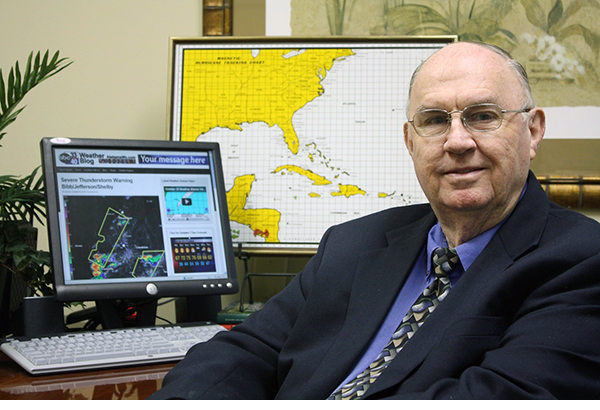Excessive Heat In Europe
DISCUSSION: When most people think of severe weather, tornadoes, hurricanes, and other dramatic phenomena typically come to mind. However, other less dramatic weather events can be far more deadly (e.g., heat waves). Heat waves generally occur over a longer time and a larger area than impacted by a tornado, for example, which helps to explain why they can be so deadly. High heat exerts a cumulative stress on the body. Thus, one hot day is generally not going to be much of an issue. But, a string of hot days coupled with warm nights (i.e., no relief at night) can start to lead to fatalities. As an extreme example of how deadly heat waves can be, an event in August 2003 in Europe killed an estimated 70,000 people.
In terms of weather conditions, this year has been similar to 2003 in Europe with periods of a few days to a week having above normal temperatures followed by a period of normal temperatures that repeats over and over throughout the summer. In addition, drought conditions can make heat waves worse and more persistent. There is less water to evaporate resulting in more incoming solar energy going toward an increase in temperatures instead of toward evaporation. Large portions of Europe were in a drought in 2003 and are again this summer. On 25 July, the high temperature in Paris was 109°F, and the high in London was 98°F, both of which were records. The picture above (credit: BBC) shows people crowding a beach in northern Germany to try to beat the heat that same day.
Fortunately, it is relatively simple to prevent deaths from heat waves. In addition to getting enough to drink, just a few hours of air conditioning per day can relieve the accumulated stress that heat places on the body. Part of the reason for the enormous death toll in 2003 in Europe was that most people do not have air conditioning.
After the 2003 heat wave, the French government took steps to prevent such a tragedy from occurring again. For example, they instituted a nationwide alert system to provide heat warnings and recommended mitigation actions and built cooling centers. Nevertheless, fatalities from excessive heat continue to occur in France perhaps because some people don’t receive the alerts nor are able to get to cooling centers (e.g., the homeless population). Thus, more work remains to be done in order to get the death toll from heat waves in Europe and elsewhere down to zero.
As the summer wears on, the main takeaway message here is to not get complacent and take that heat lightly. Be sure to take necessary precautions to protect yourself and check in with people who may be more vulnerable to the heat.
To learn more about European weather patterns/events and more, click here!
©2019 Meteorologist Dr. Ken Leppert II
AlabamaWX is pleased to partner with the Global Weather and Climate Center team for outstanding posts about our atmosphere. Visit them at https://www.globalweatherclimatecenter.com for more great information!
Category: Partner News Stories
















